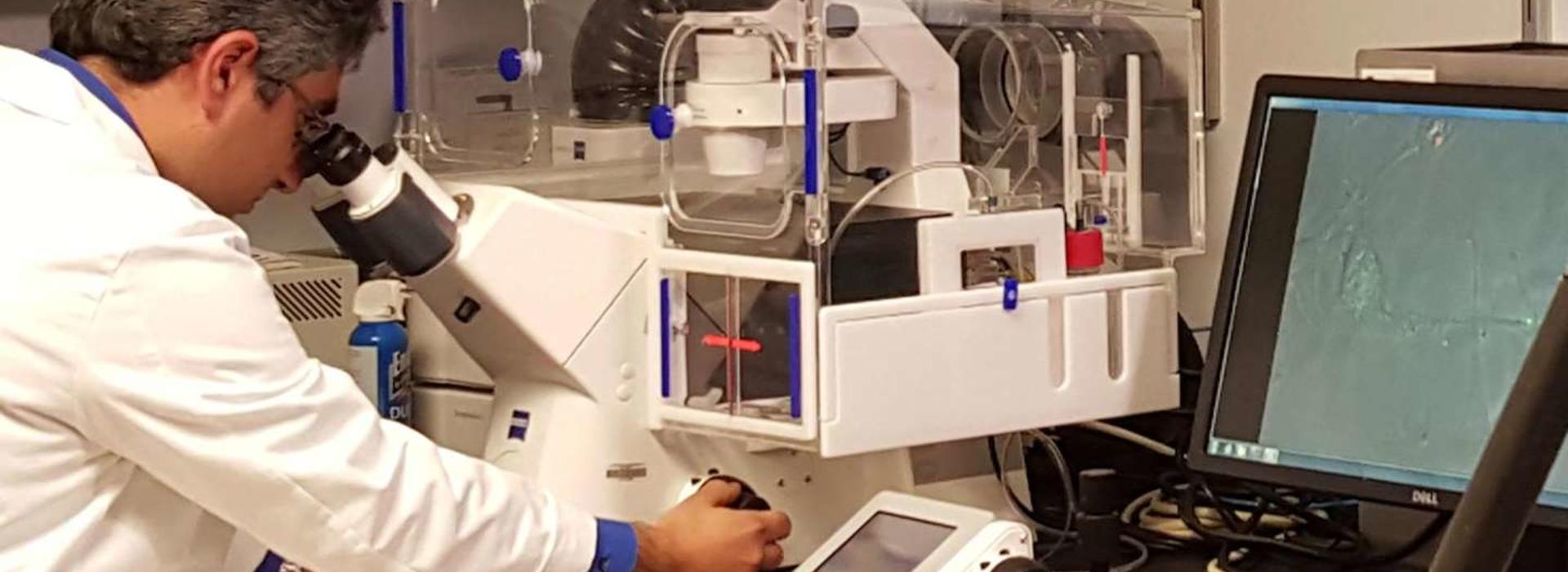
U Researchers Study Cancer Care for Patients in the Context of COVID-19
Life as usual in the United States came to a screeching halt in early 2020 after the start of the COVID-19 pandemic, but cancer patients in particular have been faced with double the danger due to a compromised immune system. These patients battling with or recovering from cancer have a far greater likelihood of mortality if infected with COVID-19, which poses unique emotional and physical challenges for this population who are already dealing with cancer.
Two projects, supported by the U of M Medical School’s CO:VID (Collaborative Outcomes: Visionary Innovation & Discovery) grants program, will research the issues that cancer patients are presented with today in hopes of discovering new ways to mitigate their burdens.
Perceptions of COVID-19 and Health
Assistant Professor Rachel Vogel, PhD, Department of Obstetrics, Gynecology and Women's Health, and team, including first author and Associate Professor Emil Lou, MD, PhD, FACP, Department of Medicine, Division of Hematology, Oncology and Transplantation, carried out a study aimed at understanding the way the COVID-19 pandemic impacts emotional health and well-being for individuals with cancer.
“We conducted surveys in early April, and in addition to stress and anxiety about contracting COVID-19, we found that cancer patients who are forced to make changes in their treatment schedules due to the pandemic, such as delaying surgeries and appointments, reported higher rates of depression,” Dr. Vogel said. “Surgeries are moving forward again, but chemotherapy and radiation treatments continue to come with a greater risk than they did six months ago.”
One finding that surprised researchers in this study was, as of April, about 20% of cancer patients reported that they had not talked with their oncologist since the start of the pandemic. The fear stirred up by COVID-19 affects cancer patients and also their oncologists, who are experiencing severe levels of anxiety given the difficult choices they must make regarding cancer treatment for their patients.
“Hearing about a new diagnosis or ongoing issues related to cancer causes patients and their caregivers a great deal of distress,” Dr. Lou said. “The onset of this global pandemic has compounded the nature of this distress in very tangible ways, including a decrease in access to services that patients with cancer would usually have access to. We carried out this survey to try to truly understand what aspects of the pandemic and stay-at-home orders were causing these patients the most difficulty.”
The results of this study echoed much of what the American Cancer Society has reported, however, the team was able to make new comparisons between patients currently undergoing cancer treatment, those with a history of cancer and those without a history of cancer.
“As the pandemic evolves, many other factors will likely become larger issues than what we’ve previously observed, including social isolation and financial concerns, but an important first step is to ensure that cancer patients are connecting with their oncology team and working to make treatment decisions together that maximize their length and quality of life while minimizing their risks of COVID-19 and associated psychosocial concerns,” Dr. Vogel said.
Impacts of COVID-19 on Cancer Care and Outcomes
The second study on cancer care and COVID-19 was led by Amit Kulkarni, MD—a clinical fellow in the Department of Medicine, Division of Hematology, Oncology and Transplantation—aimed at defining the impact of the COVID-19 pandemic in terms of patterns of cancer care, disruption, outcomes and developing appropriate mitigation strategies to improve care in this environment.
“The biggest takeaway from the study we did is that patients with cancer who are doing well and feeling fit should continue to move forward with their treatments that demonstrate proven survival benefits,” Dr. Kulkarni said.
Researchers in this study also concluded that cancer patients who are not doing well or whose cancer is progressing are at an increased risk of complications and death from COVID-19. These patients should be reassessing their condition regularly with their oncologist. Dr. Kulkarni recommends close follow-up with their care providers and oncologists to discuss ongoing cancer care and to determine the risks and benefits of each intervention.
Dr. Kulkarni is a part of a larger multi-institutional collaborative effort called the COVID-19 Cancer Consortium. This group originally began on Twitter as a grassroots effort of researchers trying to work together, which now has over 100 institutions involved as part of the consortium.
Virtual Appointments and Cancer Care
Over the last few months, providers have transitioned to examining and delivering care for patients through virtual visits when they are able to use video and phone calls. Dr. Kulkarni believes this will remain the case for an extended period of time and notes that there is a need for improved virtual technology.
“Given the sensitivity of virtual appointments, it is not as simple as connecting using a Zoom button. There are a lot of hoops to jump through, and we need to come up with a way to make this process more user-friendly for providers and patients,” Dr. Kulkarni said.
The concerns providers have about access for some patients using virtual appointments is due to their potential lack of access to the internet and newer technologies in some rural areas. The average age of a patient with cancer is 66 years old, which makes the technology gap even more difficult for some. A new and easy-to-use technology is in development.
“As cancer researchers, we need to double down. Cancer isn’t slowing down for the pandemic and neither do we,” Dr. Vogel said.